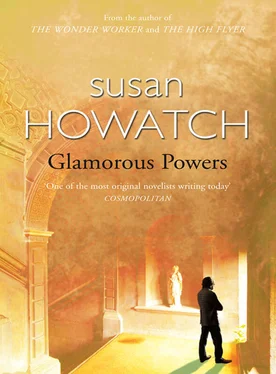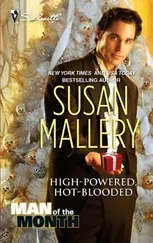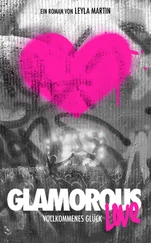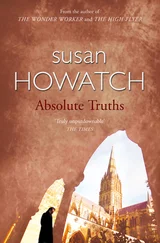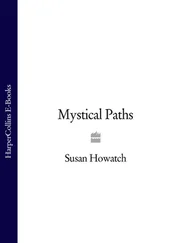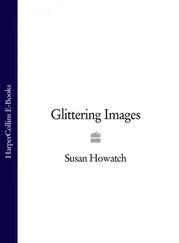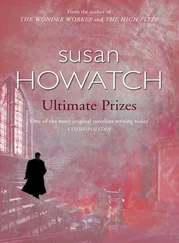1 ...6 7 8 10 11 12 ...30 These lowering thoughts occupied me throughout my journey on the underground railway from Liverpool Street Station to Marble Arch. Then I pulled myself together as best I could, gathered up a few scattered shreds of faith and trudged north through the brilliant June sunshine to the townhouse which had once belonged to the Order’s founder, Mr Horatio Ford.
‘My dear Jonathan, how wan you look!’ said Francis in his most theatrical voice as I entered the room where he conducted his daily business. ‘But then the news in this morning’s Times is enough to make anyone blanche. I confess I’m seriously tempted to buy a wireless in order to hear Mr Churchill’s broadcast tonight – only the thought of Father Darcy turning in his grave deters me.’
‘If Father Darcy were alive he would already have discovered what kind of wireless the Archbishop keeps at Lambeth Palace and he’d be busy ordering a better one from Harrods!’
We laughed. The interview seemed to have begun in a promising spirit of amity, but I was acutely aware that the amity was no more than skin-deep.
When I had first met Francis in his gilded youth I had been reminded of that famous acid description of Julius Caesar: ‘He was every man’s woman and every woman’s man.’ But despite this appearance of ambivalence he had paid carnal attention only to the opposite sex and it was not until years later, when I became enamoured with modern psychological theories, that I suspected he was a homosexual who had indulged in heterosexual affairs to conceal his true inclinations not only from the world but from himself. Later still, when I had become far more cautious in applying modern psychology to complex characters, I became less confident of this facile diagnosis and wondered if the effete airs of Francis’ youth had merely been part of a mask he had assumed in order to draw attention to himself; I even wondered if the mask had been his way of damping down strong heterosexual inclinations which he believed might disrupt his life disastrously. But whatever the truth was about his sexuality the fact remained that in his maturity no one could have called him effete. He was a tall man, though not as tall as I was, and the passing years, stripping aside the air of decadence, had substituted a flamboyant air of distinction. He had fine dark eyes, expressive dark eyebrows and a remarkable head of silver hair which he wore longer than a monk should, no doubt out of vanity. I was surprised Father Darcy had permitted it. The Fordites may have dispensed with the medieval custom of the tonsure, but they are still expected to keep their hair decently short.
As I entered the room and we embarked on our friendly opening remarks he moved gracefully around the corner of his large handsome desk to meet me. The room too was large and handsome, littered with the antiques old Ford had left behind, and, as Father Darcy had once boasted smugly: ‘More than a match for any of the Archbishop’s private chambers at Lambeth.’ Father Darcy had been dangerously bold in his belief that to attract worldly respect the Order should present a worldly façade, and personally I deplored such a policy. The Abbot-General’s office in which I now stood was in the enclosed part of the house which meant that no one outside the Order ever saw it, but nevertheless it was furnished as lavishly as the Abbot-General’s parlour where important visitors were received. There was even, I regret to record, a peculiarly gross chandelier hanging from the centre of the ceiling.
After we had laughed with studied heartiness at the thought of Father Darcy ordering the latest wireless from Harrods, we moved swiftly through the formula of cenobitic greeting like actors in a well-rehearsed play. As Francis paused by the desk I knelt, touched his abbot’s ring with my lips and then rose to shake his hand. A moment later we were both seated facing each other across his desk.
‘I’m sorry to hear you have a difficulty with your son,’ said Francis, idly picking up my letter in which I had requested his permission to visit Yorkshire. ‘What’s the trouble?’
‘As it happens I’ve now decided that Martin isn’t my main worry at present.’ I had to will myself to add: ‘My major difficulty lies elsewhere.’
Francis, who had been rereading the letter, at once glanced up. ‘Oh?’ he said. ‘And what, may I ask, is your major difficulty?’
I said: ‘I want to leave the Order,’ and at that moment the die was cast.
TWO CONTENTS COVER TITLE PAGE Susan Howatch COPYRIGHT PART ONE: THE VISION ONE TWO THREE FOUR FIVE PART TWO: THE REALITY BEYOND THE VISION ONE TWO THREE FOUR FIVE SIX SEVEN PART THREE: THE FALSE LIGHT ONE TWO THREE FOUR FIVE PART FOUR: THE LIGHT FROM THE NORTH ONE TWO AUTHOR’S NOTE ACKNOWLEDGEMENTS ABOUT THE AUTHOR PRAISE BY SUSAN HOWATCH ABOUT THE PUBLISHER PART ONE THE VISION Конец ознакомительного фрагмента. Текст предоставлен ООО «ЛитРес». Прочитайте эту книгу целиком, купив полную легальную версию на ЛитРес. Безопасно оплатить книгу можно банковской картой Visa, MasterCard, Maestro, со счета мобильного телефона, с платежного терминала, в салоне МТС или Связной, через PayPal, WebMoney, Яндекс.Деньги, QIWI Кошелек, бонусными картами или другим удобным Вам способом. ‘Ecstasy or vision begins when thought ceases, to our consciousness, to proceed from ourselves. It differs from dreaming, because the subject is awake. It differs from hallucinations, because there is no organic disturbance: it is, or claims to be, a temporary enhancement, not a partial disintegration, of the mental faculties. Lastly, it differs from poetical inspiration, because the imagination is passive. That perfectly sane people often experience such visions there is no manner of doubt.’ W. R. INGE Dean of St Paul’s 1911–1934 Christian Mysticism
‘When Tertullian, who was not a mystic, says that most men apprehend God by means of visions, we realize how natural it seemed to the ancients to believe that these experiences were a genuine and by no means unusual revelation.’
W. R. INGE
Dean of St Paul’s 1911–1934
Mysticism in Religion
I had expected a theatrical reaction but none came. Not a muscle moved in Francis’ face; his fine eyes were unreadable. Finally he dropped the letter on his desk, donned a pair of spectacles and produced from a drawer a clean sheet of foolscap. Then after dipping his pen in the ink he wrote at the top of the page: ‘JONATHAN DARROW: 17th June, 1940,’ and said casually: ‘I assume that when you say you want to leave the Order this isn’t a mere whim that’s tickled your fancy?’
‘I’m sorry, I expressed myself badly. What I want is of course quite irrelevant. But I believe this is what God wants.’
Francis underlined his heading and asked: ‘When were you first aware of this call?’
‘May the seventeenth.’
Francis raised an eyebrow, ostentatiously examined his desk-calendar and allowed a pregnant pause to develop. But eventually all he said was: ‘How did you become aware of the call?’
‘I had a vision.’
A second pause ensued and was allowed to reach a far more advanced stage of pregnancy. Francis took off his spectacles, dangled them between his thumb and forefinger and glanced at the chandelier as if each crystal had demanded a careful inspection. Then replacing his glasses he pushed them down to the tip of his nose and looked at me over the frames. Francis had a whole series of such mannerisms; I always found them excessively irritating.
Читать дальше
